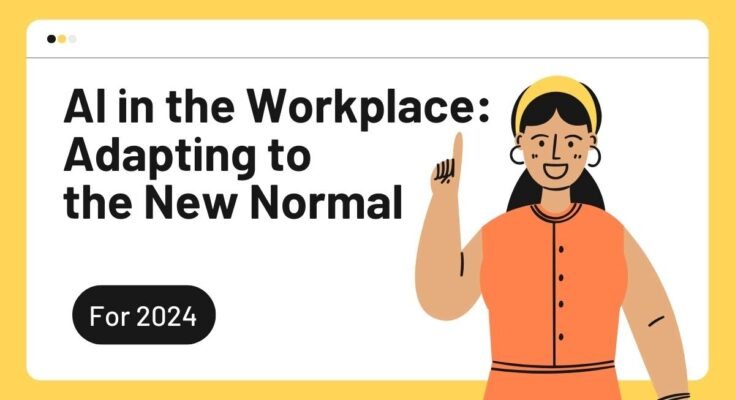The integration of Artificial Intelligence (AI) in the workplace has become a defining feature of the modern business landscape. As we move deeper into the 21st century, AI is no longer a futuristic concept but a practical tool reshaping how we work. This comprehensive guide explores how AI is influencing the workplace and how employees and businesses can adapt to this new normal.
Understanding AI’s Role in Today’s Workplace
AI technology encompasses machine learning, natural language processing, robotics, and more. Its impact on the workplace ranges from automating routine tasks to enhancing decision-making processes.
The Evolution of AI in Business
Initially, AI was primarily used for automating simple tasks. Today, it plays a crucial role in strategic planning, data analysis, customer service, and even in creative processes.
Benefits of AI in the Workplace
1. Increased Efficiency and Productivity
AI excels at handling repetitive tasks, freeing up employees to focus on more complex and creative work.
Example:
A company uses AI algorithms to analyze customer data, allowing marketing teams to focus on strategy and content creation.
2. Enhanced Data Analysis
AI can process and analyze vast amounts of data far more quickly and accurately than a human could.
Example:
Financial firms use AI to analyze market trends and provide investment advice.
3. Improved Customer Experience
AI-powered chatbots and virtual assistants provide personalized customer service without the need for 24/7 human staff.
Example:
E-commerce sites using chatbots to answer customer queries and track order status.
Adapting to AI in the Workplace
1. Embrace Lifelong Learning
As AI evolves, so must our skills. Continuous learning is essential to stay relevant in an AI-integrated job market.
2. Develop AI-Complementary Skills
Focus on skills that AI can’t replicate easily, like critical thinking, creativity, and emotional intelligence.
3. Foster a Culture of Innovation
Companies should encourage a culture where employees feel comfortable leveraging AI tools and exploring new ways of working.
Challenges of AI Integration
1. Ethical Considerations
Issues such as data privacy, surveillance, and biased algorithms are at the forefront of AI ethics.
2. Job Displacement Concerns
There’s a fear that AI could replace jobs. However, it’s more about job transformation rather than displacement.
3. Keeping Up with Rapid Changes
The pace of AI development means businesses and individuals must adapt quickly to stay competitive.
Case Studies: AI Success Stories
Case Study 1: Healthcare
AI is used for predictive diagnostics, personalized treatment plans, and even robotic surgeries, enhancing patient care and outcomes.
Case Study 2: Retail
AI helps retailers with inventory management, personalized shopping experiences, and predictive analytics for consumer trends.
Case Study 3: Manufacturing
Robotic process automation (RPA) and AI-driven predictive maintenance have revolutionized manufacturing efficiency.
Conclusion
AI in the workplace is not just an advancement; it’s a paradigm shift. Embracing AI means embracing a world of new possibilities. By understanding AI’s capabilities and preparing for its challenges, businesses and employees can thrive in this new normal. As AI continues to evolve, it will undoubtedly unlock new horizons of innovation and efficiency, making its integration into our work lives not just beneficial but essential.



